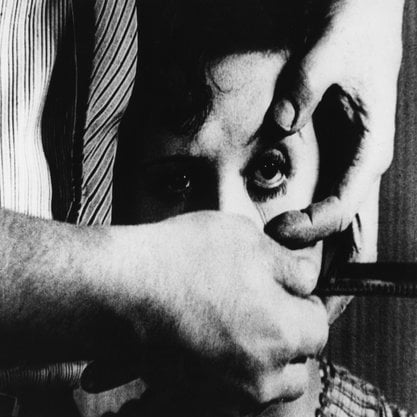Article
Regen (Rain) (1929) By Hielscher, Eva
Article
Regen (Rain) is a black-and-white short film by Joris Ivens and Mannus Franken about a rain shower in Amsterdam. As a masterpiece of Dutch avant-garde cinema, it is an impressionist and lyrical example of a city symphony, a film form that organizes urban images according to musical guidelines by combining experimental, documentary and narrative techniques. In 1932 Ivens asked Lou Lichtveld to write a score for the originally silent film, and a second sound version was made by Hanns Eisler in 1941. The film shows the effects of a natural phenomenon on the modern city with its motorized traffic and crowds, and reveals the transforming and aesthetic qualities of this everyday event by depicting the city before, during and after the rain. In a poetic play of light and shadow, reflection and refraction, the film studies the urban textures and semi-transparent surfaces such as skylights, tram windows and canals. During the rain shower, the entire city is covered with a second, semi-reflecting surface, generating a new and modern mediated vision not unlike cinematic perception. Reflected images appear on rain-soaked streets, puddles and canals. The city becomes a screen that Ivens’s camera uncovers and doubles.


